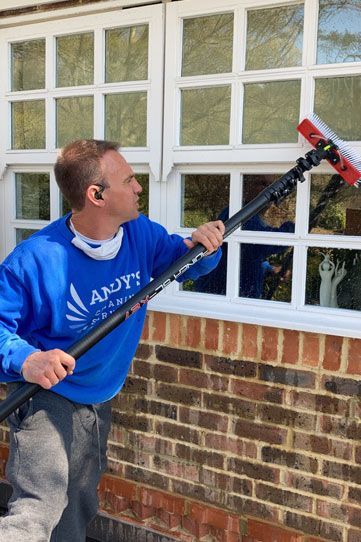Fuel efficiency is crucial for saving money and reducing environmental impact. While advanced technologies enhance fuel economy, adopting smart driving habits and regular vehicle maintenance can significantly boost your vehicle's efficiency. Discover practical tips to optimize fuel use, cut costs, and contribute to a greener planet.
How to Improve Your Vehicle’s Fuel Efficiency
In today's world, where every penny counts and environmental consciousness is at an all-time high, fuel efficiency is no longer just a luxury—it's a necessity. With fuel prices soaring and climate change pushing us to rethink our carbon footprints, the quest for better fuel economy has never been more pertinent. Imagine the relief of watching your fuel gauge move slower and your savings grow faster, all while doing your part to protect the planet. While the latest automotive technologies offer impressive strides in fuel efficiency, the truth is that your driving habits and routine maintenance can be just as impactful. From simple adjustments behind the wheel to a bit of TLC for your vehicle, these everyday practices can make a world of difference. Whether you're driving a brand-new hybrid or an older model, these tips can help you maximize every drop of fuel and get the most out of your ride. So, buckle up and get ready to transform your driving experience with practical strategies that promise both financial savings and a greener footprint.
Drive Smoothly
One of the simplest ways to improve your vehicle's fuel efficiency is by driving smoothly. Aggressive driving behaviors such as speeding, rapid acceleration, and hard braking can decrease your fuel efficiency by up to 30% on the highway and 10% in city driving. When you drive aggressively, your engine burns more fuel because it has to work harder. Instead, accelerate gently, anticipate traffic flow, and maintain a steady speed. By being mindful of how you drive, you can make a significant impact on your fuel consumption.
Maintain Proper Tire Pressure
Properly inflated tires are crucial for fuel efficiency. Under-inflated tires create more rolling resistance, which means your engine has to use more fuel to keep the vehicle moving. According to the U.S. Department of Energy, keeping your tires inflated to the manufacturer’s recommended pressure can improve your fuel economy by up to 3%. It’s a simple task that can make a noticeable difference. You should check your tire pressure at least once a month, and always before long trips. Remember to check the pressure when the tires are cold, as driving heats them up and increases pressure readings.
Use the Right Engine Oil
Using the correct grade of motor oil can improve your vehicle’s fuel efficiency by 1-2%. Engine oil reduces friction between the moving parts of your engine, helping it run more smoothly. When you use the wrong type of oil, it can cause your engine to work harder and consume more fuel. Always refer to your vehicle’s owner manual to find out the recommended oil grade for your engine. Additionally, look for motor oil that is labeled as "energy conserving" as it contains friction-reducing additives.
Avoid Unnecessary Weight
Carrying around excess weight in your vehicle can reduce its fuel efficiency. An extra 100 pounds in your vehicle could reduce your miles per gallon (MPG) by about 1%. This might not sound like much, but over time, and especially on long trips, it can add up. To avoid this, regularly clean out your car and remove items that you don’t need. Roof racks and bicycle racks also create drag, which reduces fuel efficiency. If you’re not using them, it’s a good idea to remove them. The lighter and more aerodynamic your vehicle is, the less fuel it will consume.
Use Air Conditioning Sparingly
Air conditioning (A/C) can be a major drain on your vehicle's fuel economy. The A/C system draws power from the engine, which in turn burns more fuel. While it’s sometimes necessary to use A/C, especially in hot climates, there are ways to minimize its impact on fuel efficiency. Parking in the shade can help keep your car cooler, reducing the need for A/C. Using sunshades on your windows can also help. If you’re driving at lower speeds, consider rolling down the windows instead of using A/C. However, at higher speeds, open windows can create drag, so in these cases, using A/C might be more efficient than having the windows down.
Keep Your Engine Clean
A clean engine is a more efficient engine. Over time, carbon deposits can build up inside your engine, leading to reduced efficiency and increased fuel consumption. Regular engine cleaning and maintenance can help prevent this. Using a high-quality fuel with detergents can also help keep your engine clean. Additionally, you might consider using fuel additives that are designed to clean your engine and fuel system. Consult with your mechanic to determine the best options for your vehicle.
Check Your Fuel Cap
A loose, damaged, or missing fuel cap can cause fuel to evaporate from your tank, reducing your fuel efficiency. The fuel cap is an essential component of your vehicle’s fuel system, keeping your fuel sealed in and preventing it from evaporating into the atmosphere. Each time you fill up your tank, make sure to securely fasten the fuel cap. If your fuel cap is old or shows signs of wear, it’s a good idea to replace it. Not only will this help you save on fuel costs, but it will also reduce harmful emissions.
Track Your Fuel Economy
Tracking your fuel economy is an excellent way to stay informed about your vehicle’s performance and identify potential issues before they become major problems. By noting the odometer reading and the number of gallons purchased each time you fill up, you can calculate your miles per gallon (MPG). A sudden drop in MPG could indicate a problem with your vehicle, such as low tire pressure, a dirty air filter, or a malfunctioning sensor. By staying on top of your fuel economy, you can address issues early and keep your vehicle running efficiently.
Regular Maintenance
Regular maintenance is key to ensuring your vehicle remains fuel-efficient. This includes routine tasks like changing the oil, replacing air filters, and checking the spark plugs. A dirty air filter can reduce your fuel efficiency by as much as 10%, as it restricts the airflow to the engine, making it work harder. Similarly, worn-out spark plugs can cause your engine to misfire, wasting fuel. Following your vehicle’s maintenance schedule as outlined in the owner’s manual will help keep everything running smoothly and efficiently.
Drive at Moderate Speeds
While it might be tempting to speed, especially on long highway stretches, driving at moderate speeds can significantly improve your fuel efficiency. Most vehicles achieve optimal fuel efficiency at speeds between 50 and 60 miles per hour. Once you go beyond this range, your fuel efficiency starts to decrease. For every 5 miles per hour you drive over 50 mph, it’s like paying an extra 20 cents per gallon of gas. Using cruise control on highways can help you maintain a steady speed, avoiding unnecessary acceleration and braking, which can further improve your fuel efficiency.
Plan Your Trips Wisely
Combining errands into one trip can help you save fuel. Short trips taken from a cold start can use twice as much fuel as a longer, multi-stop trip covering the same distance when the engine is warm. If possible, plan your trips so that you can hit multiple destinations in one outing. Also, try to avoid peak traffic times when possible, as idling in traffic wastes fuel. Using a GPS or traffic app can help you find the most fuel-efficient routes and avoid congested areas.
Reduce Idling
Idling is one of the least fuel-efficient practices. When your car is idling, you're essentially getting zero miles per gallon. Modern vehicles are designed to use less fuel when restarted than when left idling for long periods. If you expect to be stopped for more than a minute, such as at a long traffic light or waiting to pick someone up, it’s more fuel-efficient to turn off your engine. Many newer cars come with a start-stop system that automatically turns off the engine when idling, further improving fuel efficiency.
Use Higher Gears
Driving in the highest gear possible without straining the engine is a good way to improve fuel efficiency. Lower gears provide more power, but they also require more fuel. Shifting up a gear sooner and avoiding staying in lower gears for longer than necessary can help reduce fuel consumption. For manual transmission vehicles, this means shifting up as soon as possible when the car can comfortably handle it. For automatic vehicles, avoid sudden accelerations that might force the car into a lower gear.
Minimize the Use of Electronics
While it might not seem like much, using electronics such as the radio, GPS, and charging devices can put an additional load on your vehicle’s electrical system. This, in turn, can cause the alternator to work harder and consume more fuel. When trying to maximize fuel efficiency, consider minimizing the use of non-essential electronics. Even small changes, like dimming the dashboard lights, can make a difference in the long run.
Choose the Right Vehicle
If you’re in the market for a new car, choosing a fuel-efficient vehicle is one of the best ways to save on fuel costs. Smaller, lighter vehicles tend to be more fuel-efficient than larger, heavier ones. Hybrid and electric vehicles offer significant fuel savings, and even among traditional gasoline-powered vehicles, some models are designed with fuel efficiency in mind. Consider your needs and driving habits when choosing a vehicle, and opt for one that offers the best fuel economy in its class.
Conclusion
Maximizing your vehicle’s fuel efficiency is more than just a way to save money—it's a commitment to smarter, more responsible driving. Every gallon of fuel saved not only keeps more cash in your pocket but also contributes to a cleaner, healthier planet by reducing harmful emissions. Whether you're implementing smoother driving habits, maintaining your vehicle regularly, or being mindful of the little things like tire pressure and unnecessary idling, these small actions add up to significant benefits.
By taking control of your fuel consumption, you're not just enhancing your vehicle's performance; you're also embracing a more sustainable lifestyle. The road to better fuel efficiency is paved with simple, yet powerful, changes that anyone can make. These strategies don’t just reduce your trips to the pump—they also contribute to a global effort to preserve resources for future generations. So, why not start today? With a few thoughtful adjustments, you can enjoy a more efficient, cost-effective, and environmentally friendly driving experience.


























